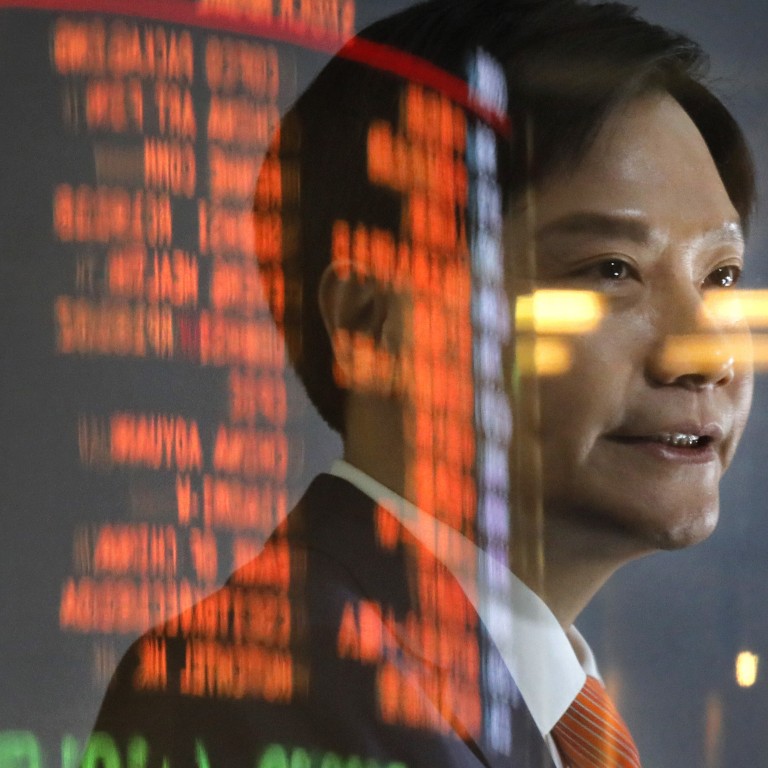
China’s tech behemoths like Alibaba, Xiaomi will be allowed to join Hong Kong’s benchmark Hang Seng Index as biggest reform since 2006 approved
- Hang Seng Index will for the first time add companies with multiple classes of voting rights and those with secondary listings
- The change marks the biggest reform to the benchmark gauge in 14 years
The compiler of Hong Kong’s benchmark stock index will for the first time admit companies with weighted voting rights (WVR) and those with secondary listings, as constituent stocks.
The decision, announced by the Hang Seng Indexes Company on Monday after a two-month consultation, paves the way for technology giants such as Xiaomi, with its WVR structure, and Alibaba Group Holding, with its secondary listing, to be included in the index.
It marks the most important revamp of the 50-year-old Hang Seng Index since the inclusion of H-shares in 2006.
The earliest possible time for the inclusion of new stocks will be August.
The reform aims to make sure the benchmark index tracking Asia’s third-largest stock market includes the most valuable stocks. The index has until now excluded WVR and secondary-listing companies even though they are the largest and most traded shares in Hong Kong.
Allowing China’s tech giants onto HSI is vital for benchmark’s future, says boss
“The decision to add these companies into the Hang Seng Index is strongly supported by the market, with 90 per cent of respondents are in favour,” said Vincent Kwan, chief executive of Hang Seng Indexes in a telephone conference after the announcement. “The change will be an important milestone for the Hang Seng Index to cover the increasing number of technology companies listing in Hong Kong.”
The weighting of the companies in the index will be capped at 5 per cent, below Tencent Holdings, AIA and HSBC – the three largest stocks in the index, each capped at 10. The limit is aimed at preventing a single stock from becoming too prominent.
Kwan said many respondents wanted to see a limit on the proportion of these companies that make up the benchmark index because a secondary-listed company can get around some of the exchange’s disclosure requirements. Some investors consider that the WVR structure is not fair to all shareholders.
For the secondary listing companies, the index compiler will only count the shares registered in Hong Kong. Alibaba had about 23 per cent of its issued shares registered in Hong Kong at the end of March.
Before the announcement after the market closed on Monday, investors had bet on the news. Alibaba jumped 3.1 per cent to close at HK$203, Meituan Dianping rose 2.1 per cent to HK$121.9 while Xiaomi edged up 0.7 per cent to HK$12.04. The Hang Seng Index increased 0.6 per cent to close at 23,934.77.
“It is a good move. It reflects the Hong Kong capital markets is moving closer to the mainland trend in which technology companies are playing an important role in the market,” said Frederick Chu Ian-kit, head of ETFs at China Asset Management (Hong Kong). “The Hang Seng Index, as the signature index of Hong Kong, will catch up on this trend. It will also encourage more US-listed technology firms to have a secondary listing in Hong Kong.”
Alibaba, the owner of the South China Morning Post, has not been qualified to join the Hang Seng Index because of its secondary listing status. The compiler said in the consultation paper that it needed to open the door as it expected more US tech firms to list here.
Alibaba, food delivery firm Meituan Dianping and Xiaomi are the three WVR companies listed in Hong Kong now, and the trio always rank among the top five most traded stocks in the city.
Together they commanded almost HK$5.3 trillion (US$679 billion) in market value at the end of 2019, about 56 per cent of the current market capitalisation of the Hang Seng Index.
The Hang Seng Index, launched in November of 1969, has 50 constituent companies and tracks the biggest and most liquid stocks in the city.
There are currently 23 exchange-listed products tracking the Hang Seng Index, representing more than US$20 billion in assets under management. On average, over 280,000 HSI futures and options contracts were traded in Hong Kong daily last year.
The value of Mandatory Provident Fund (MPF) assets invested in funds tracking the Hang Seng Index is about US$8 billion, according to data released in the consultation paper. The MPF is Hong Kong's compulsory retirement pension plan.
The inclusion of secondary listing companies in the Hang Seng Index will raise hopes that the mainland’s watchdog, the China Securities Regulatory Commission (CSRC), will admit those firms’ shares into the stock connect schemes, which allow cross-border trading by investors in Hong Kong and the mainland.
Help us understand what you are interested in so that we can improve SCMP and provide a better experience for you. We would like to invite you to take this five-minute survey on how you engage with SCMP and the news.

